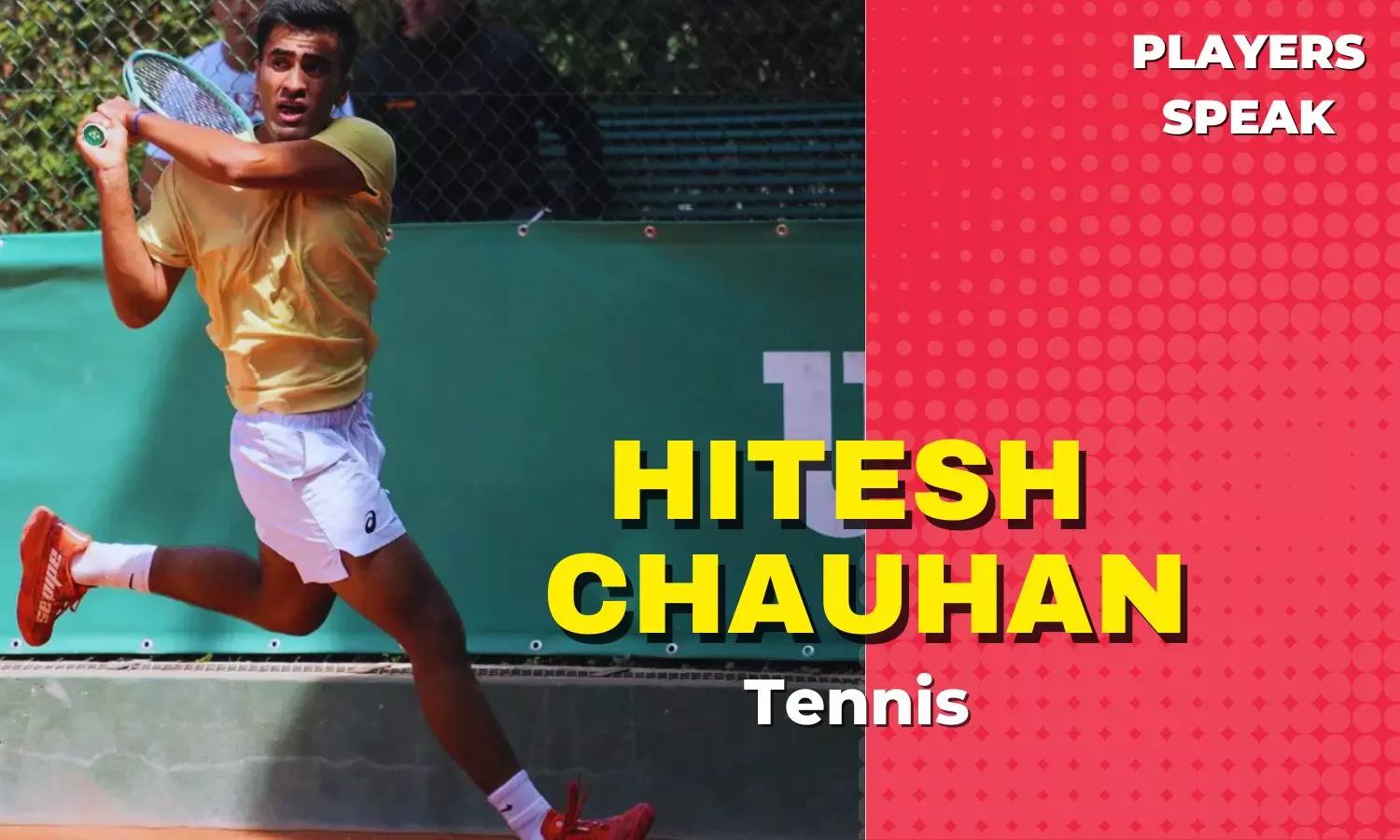Tennis
Pressure, pain, and Paris: What Roland-Garros taught me | By Hitesh Chauhan
By handling pressure I found joy on my Roland-Garros Juniors debut.

In the short term, I want to break into the top 10 or top 20 in juniors. (Photo credit: RoundGlass Tennis Academy)
Pressure is a privilege. My coach always tells me that.
I kept reminding myself of that when I stepped onto the court at Roland-Garros junior.
First French Open Juniors main draw. Clay. Nerves. Excitement. All of it.
I just told myself: be in the moment. Do what you’ve been doing. Don’t try anything new. Just stay there, point by point.
I made it to the men's singles main draw. "The first match went well—Qualifying Round 1—I was confident, hitting clean, everything was going the way I wanted.
Won it 6–3, 6–0. Then came the toughest match I’ve played so far. I lost the first set, 6–4 or 7–5, close one.
In the second set, I started cramping badly. Legs, shoulders, arms. I couldn’t run more than three balls.
I took a medical time-out every changeover. Pain was there. But I just told myself—this chance isn’t going to come again. It’s do or die. You don’t get to play a Grand Slam every day.
I slowed things down, drank lots of electrolytes, made him wait, broke his rhythm. I couldn’t go full physical, so I went mental. Played smart, stayed present. I found a way. Won the match. That one made me feel proud.
Clay is a different beast. It’s physical, but more than that, it’s mental.
On clay, you’re rallying nine, ten shots every point. Long matches. Big grind.
The movement, the strategy—everything is different. It’s the hardest surface to play on.
But we had a few days of training on clay in Europe before the tournament. That helped me adjust. Once I started hitting clean and moving well, I just played freely.
One of the biggest changes in my game has come from training with Yuki Bhambri at RoundGlass. He’s been huge for me.
Learning how to handle pressure at 4–4, 5–5, when the match gets close. He watched my match in Paris and told my coach we need to work on first-ball aggression, use more slice, and set plays for pressure points. That kind of input helps a lot.
I started tennis when I was four and a half. My brothers were playing cricket at Khalsa College in Ludhiana.
I saw some tennis courts there, saw rackets and balls for the first time, and I just got excited. I wanted to do it. My mom gave me a racket, and from then on, I just kept playing. Every day. I loved it.
By the time I was eight or nine, I was beating kids who were much older than me. Tennis became my life.
My dad, Bharat Bhushan Chauhan, works with a logistics firm in Ludhiana. He put all his savings into my tennis. My mom, Rekha Chauhan, was a track-and-field athlete, won medals in school and college.
Both of them had to give up sports because of money. So when they saw I had talent, they gave everything. Whatever I’ve achieved so far is because of them.
In 2021, when Aditya Sachdeva came to Chandigarh and started RoundGlass Tennis Academy, I joined. From that moment, I knew—this is where I want to be. This is my home. My coach, the whole team support me like family. That makes a huge difference.
I’m mainly a singles player. I won the sub-junior nationals in 2022, singles title. But I play doubles too. It keeps you sharp.
If you lose in singles, you still get to compete, get points, some prize money, and you learn new things. In doubles at the French Open, my partner and I were both aggressive from the baseline, strong at the net. We pumped each other up. “Next point, come on, we got this.” That kind of energy helps.
Now my focus is on Roehampton and Wimbledon. In the short term, I want to break into the top 10 or top 20 in juniors. That’ll open doors—wildcards, bigger events.
Long term, I want to break into the ATP Top 50 or even Top 30 in men’s singles. That’s the big goal.
The biggest lesson I’ve taken from Roland-Garros? Pressure is a privilege. And also—enjoy the game.
Whether it’s practice or a Grand Slam, if you don’t enjoy tennis, you can’t be the best.
Keep working hard, stay focused, and enjoy what you do—on and off the court.
As told to Aswathy Santhosh

